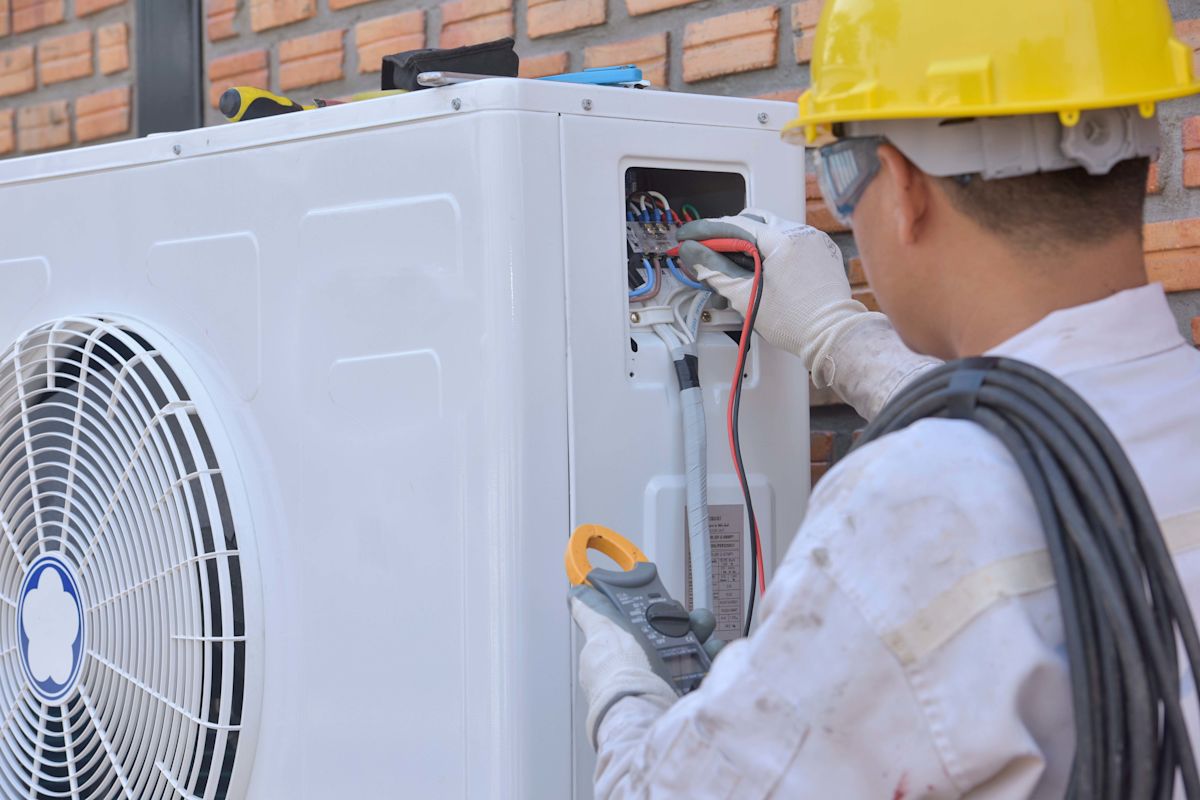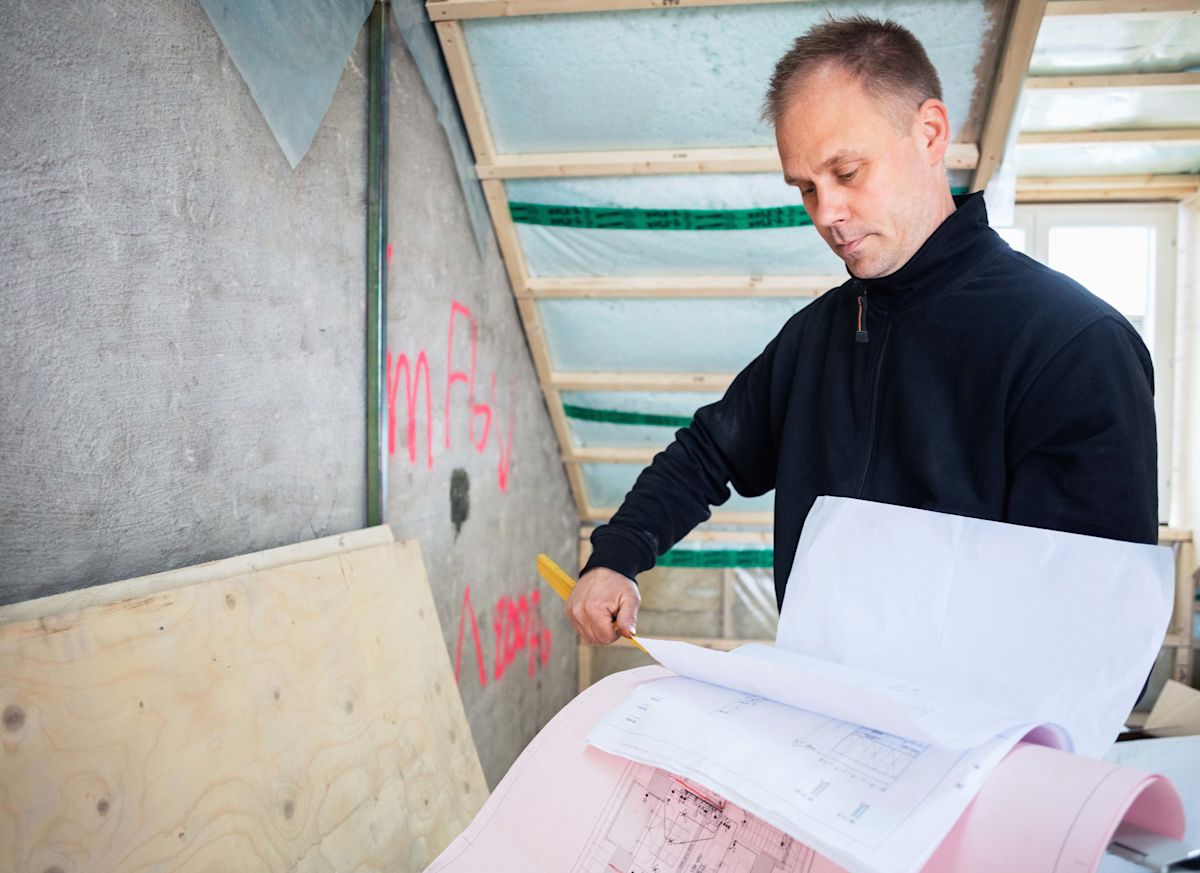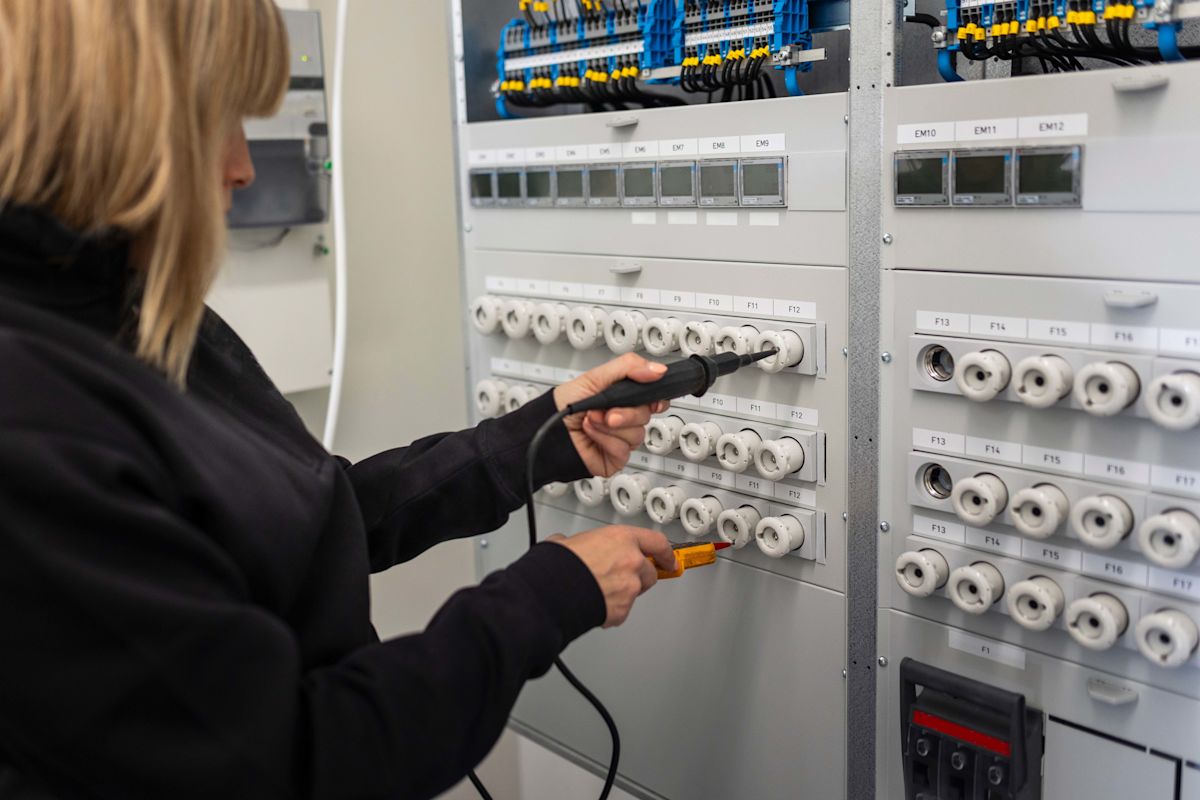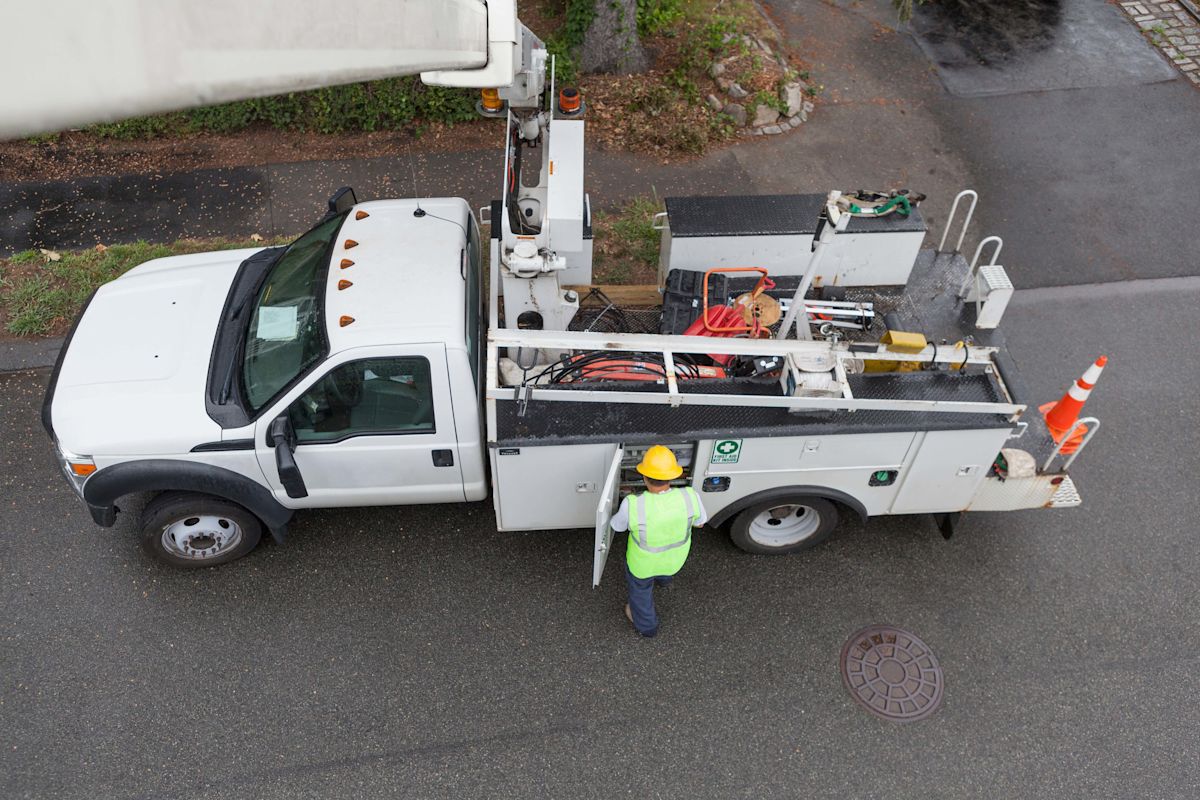
Demand is high to fill electrician jobs. Do you have the skills?
Discussed in this article
The need for trade workers is growing across the U.S., due to an aging (and retiring) workforce paired with a constant growth in infrastructure. In fact, experts predict there will be more than 300,000 jobs in the trades within the next few years. Among those, electrician jobs are near the top of the list.
Who makes a good electrician? If you enjoyed math and physics in high school, you could be a perfect fit. Electrician jobs entail calculating electrical loads, measuring voltage and currents, and figuring conduit and wire sizes. Problem-solving skills are a must.
It’s also helpful to be good with your hands. Dexterity is important because you may spend hours every day rearranging wires or handling tools. In fact, the job entails a lot of movement, from climbing and balancing on ladders to digging ditches and navigating small spaces. If you’re not already limber, start working on it; you may be crawling and reaching much of the time.

Electricians work on all types of equipment, including HVAC systems.
How to become an electrician
What better way to learn a skill than working side-by-side with an experienced pro? In Utah, we have a network of eight technical colleges to help you get started. There, you can take classes and be assigned to a journeyman or master electrician who will help you learn as you go.
Your entry-level electrician job will be as an apprentice technician. To earn a professional license in Utah, you must:
Complete 576 classroom hours
Work 8,000 hours under a licensed journeyman or master electrician
Or, complete 16,000 hours working under journeyman or master
Pass licensing exams
Working with electricity can be dangerous, which is just one reason you’ll spend hours in training. Experts will teach you how to prevent accidents and injuries, so you can stay safe on the job. Along with pertinent skills, you’ll also become familiar with state and city building codes and regulations.
Search electrician jobs on KSL

Learn to read blueprints for installations.
Electrician jobs
What does an electrician do? The job is much more than putting wires together. To become a successful electrician, you’ll also need to learn some technical skills.
Residential electrician
Part of the job is wiring, of course — installing and repairing electrical systems. You might work on residential projects, from houses to apartment buildings, getting them ready for everyday use. You’ll spend a lot of your time pulling wires through pipes and connecting switches and outlets.
In your training, you’ll learn to read and interpret blueprints and technical diagrams so you know where wiring should go. You should also know how to make adjustments if the plans aren’t feasible.
In addition to installing lights and fire alarms, electricians may work on features such as HVAC units, security systems and sound systems. You might even be an appliance repairman as a residential electrician. You may need to learn different types of circuitry, both high-voltage and low-voltage systems.

A maintenance electrician keeps businesses running smoothly.
Maintenance electrician
If you like solving problems, you may prefer working as a maintenance electrician. In this role, you’d be responsible for maintaining and repairing electrical equipment already installed. This could be an on-call job for residences — something you may do as an independent contractor.
An electrician job also could be a full-time position for industrial or commercial buildings. In addition to basic electrical maintenance, you might work on projects such as programming switchboards or repairing machinery circuit boards.
For this type of work, you’ll need to understand how to test systems, diagnose and troubleshoot problems. In the job, you’ll use trade specific tools such as multimeters, oscilloscopes and circuit testers.

A line electrical worker maintains utility power lines.
Linemen
Working as an electrician is definitely not a desk job. And if you prefer staying outdoors, you may enjoy working as a lineman, or a line electrical worker. These are the people who install and maintain utility power lines, assuring that electricity moves from power plants to substations. This job entails working with high voltage lines.
Find electrician listings on KSL Jobs
Other skills
In addition to the technical skills you’ll need to be an electrician, it’s also beneficial to develop customer service skills. In many cases you’ll be working with the public, entering their private homes and workspaces.
Communication
Homeowners and business owners know when an outlet isn’t working, but that’s usually about as far as their knowledge goes. As an electrician, you should be able to explain what work needs to be done in a way that is easily understood.

Put your calculating skills to work as an electrician.
Time management
Once you become a licensed electrician, you may be working on your own for many projects, which means you’ll need to keep yourself on task. People will be relying on you to complete work in a timely manner, so it’s important to learn to manage your time effectively. Before starting, decide how much time the job should take and what resources are needed.
Team player
On large projects or in a commercial setting, you may be working as part of a team of engineers, construction workers, plumbers, etc. Learn how to collaborate effectively so that everyone can complete their tasks. You’ll need to be a good listener, communicate well with others and be responsible.
Job security
Electricians are in high demand, which means there are plenty of well-paying, stable positions. You could work in residential, commercial or industrial settings. Search electrician job listings available now on KSL Jobs.


